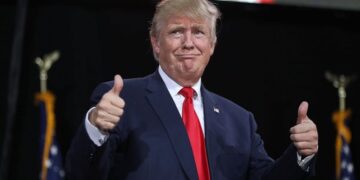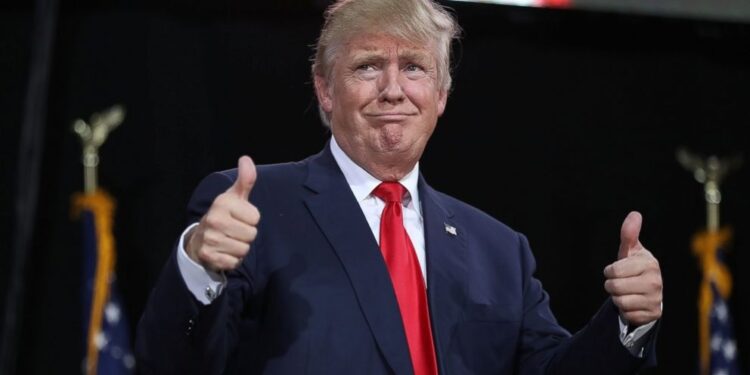By John Ikani
The United States Supreme Court has, for the first time, acknowledged that former presidents have immunity from certain prosecutions for actions taken while in office.
This decision came as it overturned a lower court ruling that rejected Donald Trump’s attempt to avoid criminal charges related to his efforts to challenge his 2020 election defeat.
On Monday, the court ruled 6-3 that former presidents are immune from prosecution for actions within their official duties but not for private conduct.
This ruling is unprecedented in U.S. history, marking the first instance where the Supreme Court has declared that former presidents may have immunity from criminal charges in specific situations.
‘Big win’
The ruling is expected to bolster Trump’s defence against federal charges concerning his attempts to overturn the 2020 election results. It may also influence similar charges at the state level in Georgia.
Trump quickly praised the ruling. “BIG WIN FOR OUR CONSTITUTION AND DEMOCRACY. PROUD TO BE AN AMERICAN,” the former president posted on social media.
Chief Justice John Roberts announced the decision, representing the conservative majority of six justices. The court’s three liberal justices dissented.
The justices argued that allowing former presidents to be prosecuted for their official actions could lead to political revenge and authoritarianism.
“The President enjoys no immunity for his unofficial acts, and not everything the President does is official. The President is not above the law. But Congress may not criminalize the President’s conduct in carrying out the responsibilities of the Executive Branch under the Constitution,” they stated.
They clarified that this immunity is applicable to all former presidents, “regardless of politics, policy, or party”.
Three of the six justices supporting the ruling were appointed by Trump.
Liberal Justice Sonia Sotomayor strongly opposed the majority’s view, arguing that the ruling effectively sanctions abuse of power.
“The President of the United States is the most powerful person in the country, and possibly the world. When he uses his official powers in any way, under the majority’s reasoning, he now will be insulated from criminal prosecution,” she wrote.
“Orders the Navy’s Seal Team 6 to assassinate a political rival? Immune. Organizes a military coup to hold onto power? Immune. Takes a bribe in exchange for a pardon? Immune. Immune, immune, immune.”
Several Democrats condemned the Supreme Court’s decision. Progressive Congresswoman Alexandria Ocasio-Cortez described the ruling as an “assault on American democracy”.
Over to lower court
The decision now returns the federal election interference case to a lower court. Legal proceedings were previously delayed to resolve the question of immunity.
While the Supreme Court did not explicitly determine whether all of Trump’s actions around the election were “official” or private, it ruled that his communications with Justice Department officials are immune from prosecution.
U.S. authorities had accused Trump of using “the power and authority of the Justice Department to conduct sham election crime investigations and to send a letter to the targeted states that falsely claimed that the Justice Department had identified significant concerns that may have impacted the election outcome”.
However, the court ruled that Trump is “absolutely immune from prosecution for the alleged conduct involving his discussions with Justice Department officials”.
Determining whether Trump’s other actions are protected by the granted immunity will likely delay a trial further, potentially pushing proceedings past the presidential election in November, where Trump is set to run against Biden again.
Following the ruling, the judge overseeing the federal election case in the DC District Court, Tanya Chutkan, will ultimately go through the charges against Trump line by line to decide what constitutes official actions and what constitutes private actions.
Democrats argue that Trump poses a threat to democracy, pointing to his efforts to reverse the 2020 election results, which they say culminated in the January 6 Capitol riot by his supporters.
Trump, who is facing four sets of criminal charges, accuses Biden of using the justice system against him.
Trump is the first former U.S. president to face criminal charges. In May, he was found guilty of falsifying business records related to a hush-money payment made to adult film star Stormy Daniels before the 2016 U.S. presidential election.




































